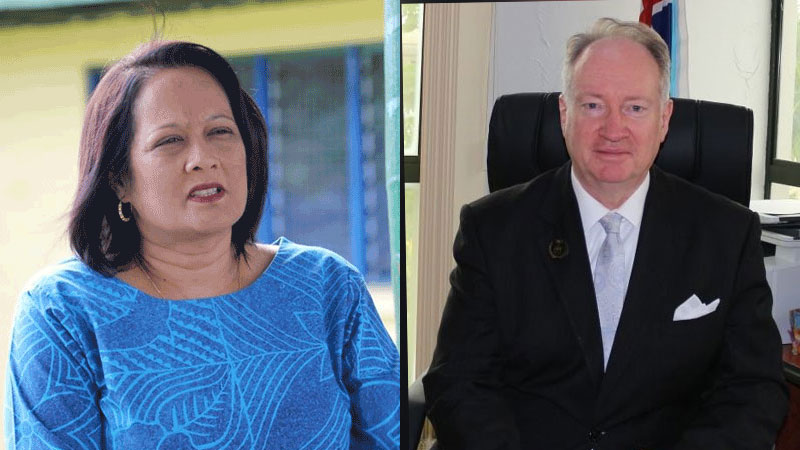
Minister for Women, Children and Poverty Alleviation, Rosy Akbar is expected to respond to a statement released by the Director of Public Prosecutions, Christopher Pryde this afternoon who labelled Akbar’s comments at a consultation last week as inappropriate.
When approached, Akbar says a formal response is being prepared and refused to comment on the issue.
In a statement, Pryde says in an article published yesterday in the Fiji Times, Akbar has said she would lobby for stricter measures in every single case of domestic violence and sexual offences because it could save lives.
He says sentencing is a judicial function and undertaken carefully by the courts in accordance with the Sentencing and Penalties Act 2009 and the relevant judicial tariffs for the offence.
Pryde adds the courts impose sentences that reflect the seriousness of the offending and take into account the various aggravating and mitigating factors particular to each individual case. He further says Fiji has some of the strictest sentences for sexual offending where the sentence for rape is life imprisonment and the Supreme Court in 2018 increased the tariff on child rape from 11 to 20 years imprisonment and stated that, in particularly heinous cases, the courts will exceed that tariff.
He says it is therefore inappropriate for the Minister, as a member of the executive branch of government, to attempt to interfere in the sentencing process which is clearly a judicial function.
The DPP further says any changes to the statutory law need to be brought before parliament and sentencing of a convicted person needs to be done independently by the courts applying parliament’s law without interference.
Pryde says the article also reported the Minister had met the child who had witnessed the Volivoli homicide.
He says as this matter is subject to a police investigation, it is inappropriate for the Minister to be contacting prosecution witnesses in any capacity as it may potentially jeopardise any future prosecution.
The DPP says there are procedures in place to deal with vulnerable witnesses such as children, and it is important that only professionally-trained people are involved in the process in order to minimise the child’s trauma and safeguard the evidence.
He further says there is a reason the Constitution separates the functions of the executive, the legislature, and the judiciary and the boundaries separating each branch of government need to be respected.
Pryde also says issues such as bail or sentencing are judicial functions and the judiciary should be allowed to make decisions on these matters without lobbying or other pressures being placed on them outside the court process.
Stay tuned for the latest news on our radio stations


